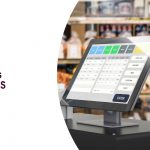Manufacture vs. Wholesale: Pros and Cons
Coming up with a product in your mind is one thing – but to turn it into a reality is something entirely different.
With an idea in your mind, and an entrepreneur-like confidence in your heart, you’re left to pick one of the two most popular sourcing models, through which you can get your choice of product: manufacture, or wholesale.
Which one do you pick? Which model saves the most money? And which one delivers in terms of quality?
I bet there are lots of questions, and not enough answers. In this article, we’ll make it a little easy for you – let’s go over some pros and cons of each business model one by one, and then get our verdict.
Manufacture:
What is it? This is a method of getting your products directly from a manufacturer, and then selling it further. Here, you don’t have to make the product yourself – you can simply buy bulk off of cheap manufacturing companies like Alibaba.
This happens to be a very popular method of sourcing, especially for start-ups that either can’t or don’t want to make their products from scratch. Despite being an easy choice, what pros and cons does it entail?
Pros:
- Quality control:
Perhaps the biggest benefit of sourcing from manufacturers is that you have greater control over the quality of the product you’re receiving. Suppliers even go the extra mile by checking the quality themselves before sending it over to you, making sure that you receive a good product, and they don’t lose a customer.
- Brand control:
Manufacturer sourcing gives you a degree of freedom – since the product manufactured for you, you can do whatever you want with it. You can build your brand yourself, including using your own logo, brand name, packaging and the like.
- Large amount – lower cost:
With a good production line, manufacturing companies can produce good quality product in bulk, without having to spend time laboriously making each product by hand, or assembling complex individual parts themselves. This leads to you getting more products in lesser cost.
- Simplify the process
Manufacturing requires automation of processes – so much so, that a “recipe” of formulation is used, with human error reduced. This way, manufacturing processes become streamlined and any operational error becomes easy to log, trace and fix.
Cons:
- Complicated and time-consuming:
If spending time to find the right manufacturer wasn’t time-consuming enough, the process of manufacturing itself has a lot of processes – prototyping, sampling, refining, manufacturing in bulk, the list goes on. You need a lot of patience if you want this business model to suit you, which does not sit well with every business person.
- Minimum order quantity:
When dealing with manufacturers, you have to buy a Minimum Order Quantity (MOQ). This start-up cost can be a great burden for newly established businesses, because this causes initial costs to reach sky levels – something nobody wants. This also puts stress over your inventory, since you can’t invest too much to manage it.
- Inconsistent deals with overseas manufacturers:
Overseas manufacturers can be very hard to deal with at times – because of the distance, communication is more often than not rocky. Most of the times, their staff and manufacturing standards are low, potentially harming product quality. Furthermore, there is always the underlying possibility of theft or fraud from their end, which only burden your business.
Wholesale
What is it? Buying wholesale means you’re buying products at discounted wholesale rates, and then reselling them at a higher price to gain profit. Here, you’re not making the entire product from scratch – you’re buying something that already exists in the market. This is a business model that new entrepreneurs prefer for many reasons.
Pros:
- Low risk of backfire:
A distinct feature of sourcing from wholesalers is that you’re buying and selling ready-made products. These products already have an existing market, so an entrepreneur depending on them don’t have to worry about creating a product that nobody wants.
- Better deals:
Wholesalers often sell updated samples of products or catalog products at highly discounted prices. This gives you the edge to snatch the opportunity, and get your choice of goods at a great price.
- Familiarity with existing brand:
Since wholesale products already exist in the market, they have their own brand name. Associating your brand with theirs helps positively position your business – that brand-like “aura” becomes unavoidable!
Cons:
- Increased competition:
With an already existing market, comes the looming problem of competition. You’re gonna have to compete with other brands to gain attention of the same buyers; this often calls for strenuous amounts of time and money spent on marketing.
- Price control:
The degree of pricing freedom you have can be reduced if the people you’re buying from put on certain restrictions. This may disallow you from putting discounts, holiday offers and the like. Your profit margins run the risk of falling low.
- Inventory management:
Every business has a limit to how much they can invest on inventory management. The MOQ for wholesale sourcing may be large or small – but in both cases, there is never a fixed value. This makes inventory management that much more unpredictable and hence difficult.
A quick solution?
Both wholesale and manufacturer sourcing pose the same problem: inconsistent inventory management. Instead of removing the con from both models entirely, you can try to fix it yourself by investing in an inventory management software. Oscar POS is one preferable system; although it seems to contain the functions of a POS terminal, it actually has an inventory management software integrated within, which lets you avoid stock-outs with the help of regular low inventory alerts; overstocking and dusty inventory is also looked after with real-time updating stock levels.
The Verdict
So which model is the right one for you? There is sadly not one fixed answer to that. Depending on the product or niche you’re targeting, the right sourcing business model may be an obvious choice:
- If you want to resell successful products – pick Wholesale
- If you want to scale business with low expenses – pick Manufacture
However, you need to realise one thing: such models will shape your business as a whole – therefore, weigh the pros and cons carefully. You may even seek professional advice before you take your first step.
It is important to know that it’s your business – so choose what feels right for you.








